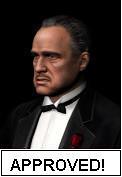After the release of Mr Kember, Mr (Terry) Waite said he applauded their motives but cast doubt on their methods.
He was responding to the news that another member of Christian Peacemaker Teams was planning to return to Iraq.
Jan Benvie, from Edinburgh, defended her right to go to the kidnapping hotspot against Foreign Office advice, saying: "In general, we allow adults to make their own decisions about their lives."
But Mr Waite told GMTV that going to Iraq could end up involving other people.
He said: "The first thing I would say is I applaud the motives of anyone who wishes to work for peace.
"The situation in Iraq is dreadful, the ordinary civilian population are suffering terribly and it is something to be commended to go and stand alongside such people. I question, though, the tactic because I think the situation in Iraq is so vastly different to when I was negotiating 20 years ago.
"It has become so much more polarised and anyone, any foreigner, particularly from the West, given the history of the West in Iraq in recent years, is exposed to very grave danger, not only for political reasons but for criminal reasons also."
Mr Waite added: "The only problem with that is that as you take that stance, you do involve other people in the situation, and in your situation, and that might be a problem. As I say, I applaud the motive but at this stage I question the tactic."
Ms Benvie, who has been to Iraq before, said she would be returning despite what happened to Mr Kember. And she said if she was kidnapped, it should not put British soldiers at risk.
"We make it clear that if we are kidnapped, we do not want there to be force or any form of violence used to release us," she told GMTV.
Well, bully for you lady. Just make sure that your relatives here and the general public are aware of this and know which Church they should use to pray for intervention of a Superior Being.

